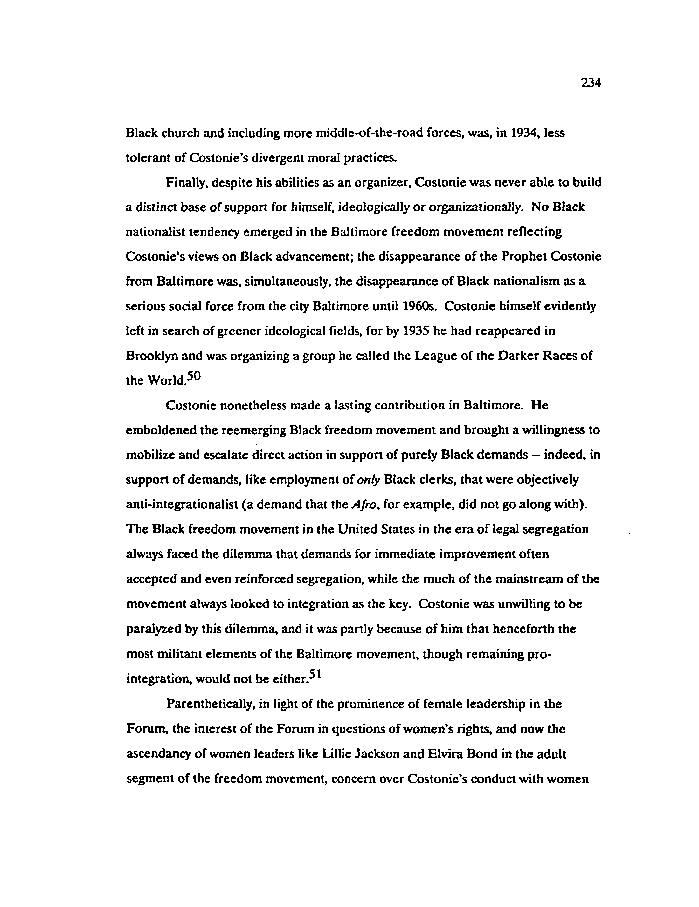|
234
Black church and including more middle-of-the-road forces, was, in 1934, less
tolerant of Costonie's divergent moral practices.
Finally, despite his abilities as an organizer, Costonie was never able to build
a distinct base of support for himself, ideologically or organizationally. No Black
nationalist tendency emerged in the Baltimore freedom movement reflecting
Costonie's views on Black advancement; the disappearance of the Prophet Costonie
from Baltimore was, simultaneously, the disappearance of Black nationalism as a
serious social force from the city Baltimore until 1960s. Costonie himself evidently
left in search of greener ideological fields, for by 1935 he had reappeared in
Brooklyn and was organizing a group he called the League of the Darker Races of
the World.50
Costonie nonetheless made a lasting contribution in Baltimore. He
emboldened the reemerging Black freedom movement and brought a willingness to
mobilize and escalate direct action in support of purely Black demands - indeed, in
support of demands, like employment of only Black clerks, that were objectively
anti-integrationalist (a demand that the Afro, for example, did not go along with).
The Black freedom movement in the United States in the era of legal segregation
always faced the dilemma that demands for immediate improvement often
accepted and even reinforced segregation, while the much of the mainstream of the
movement always looked to integration as the key. Costonie was unwilling to be
paralyzed by this dilemma, and it was partly because of him that henceforth the
most militant elements of the Baltimore movement, though remaining pro-
integration, would not be either. *
Parenthetically, in light of the prominence of female leadership in the
Forum, the interest of the Forum in questions of women's rights, and now the
ascendancy of women leaders like Lillie Jackson and Elvira Bond in the adult
segment of the freedom movement, concern over Costonie's conduct with women
|

